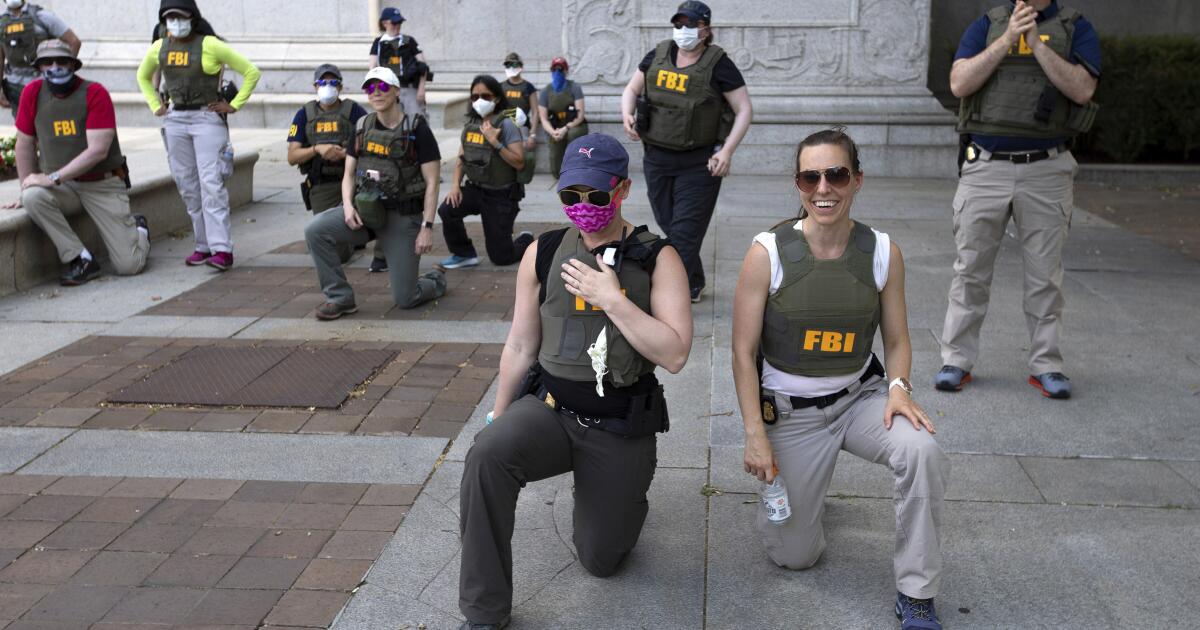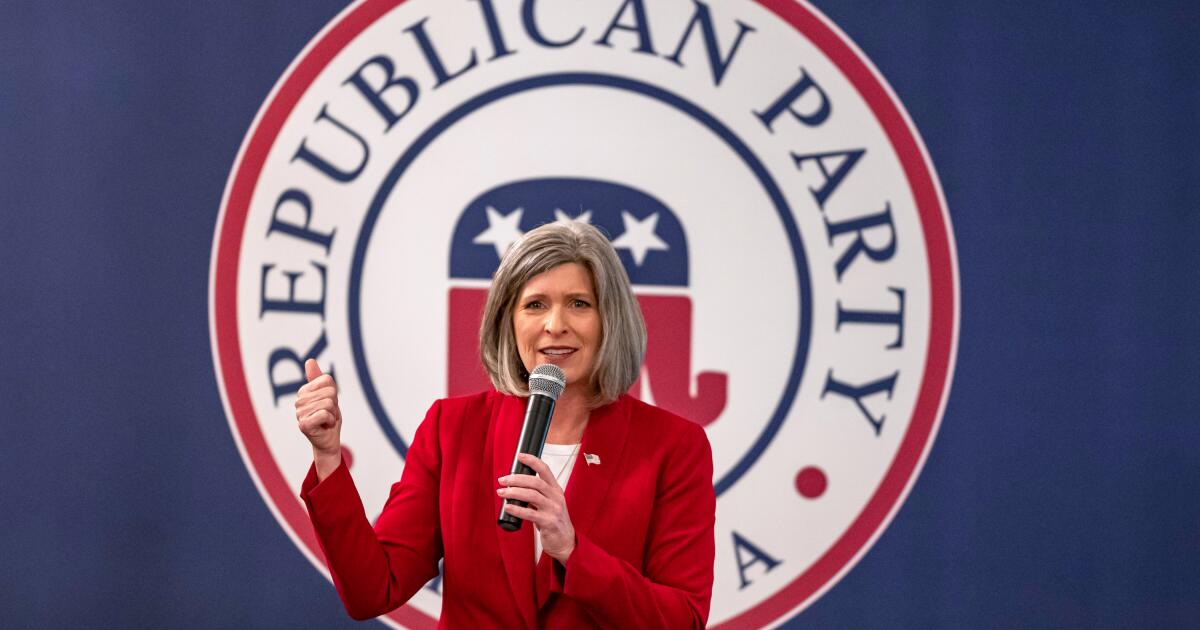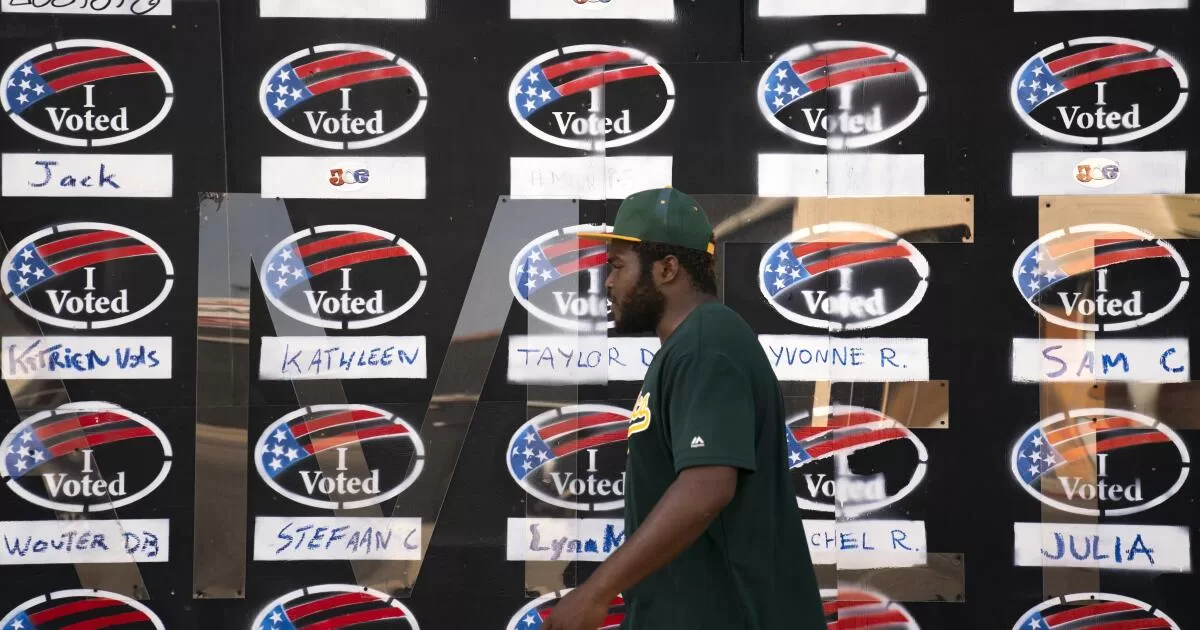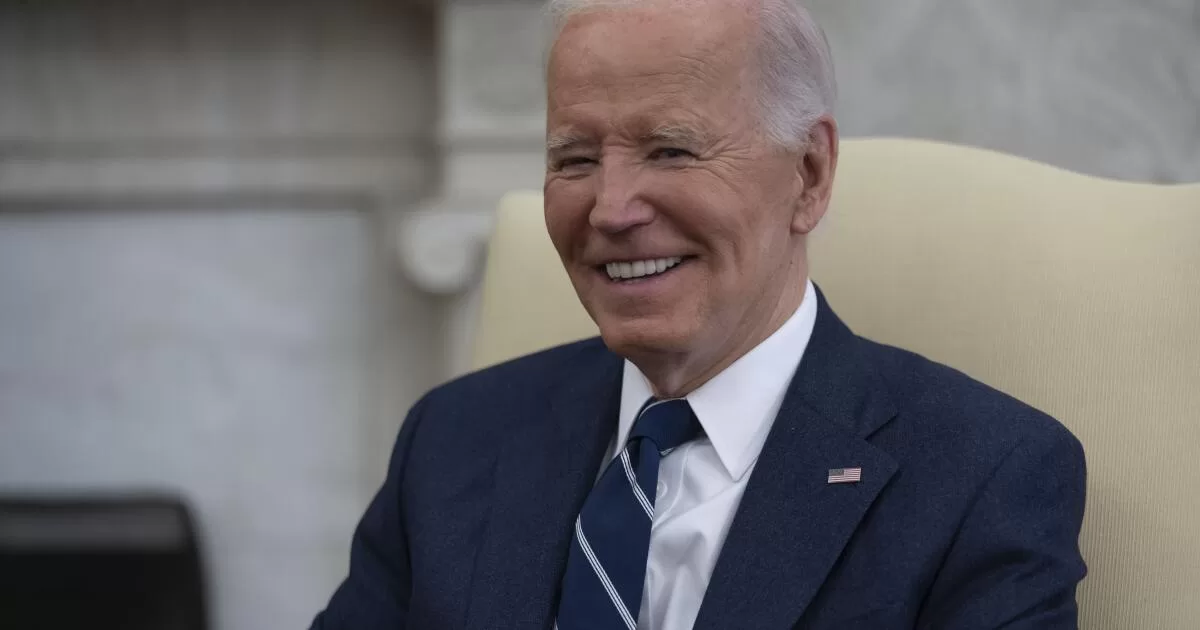It was a classic fall Saturday in L.A. — sunny and 75 degrees — but about 30 Angelenos were glued to their screens.
Actor Bradley Whitford was Zooming in from New York to address members of Swing Left Los Feliz, a local chapter of the national progressive advocacy organization. The topic of the former “West Wing” star and vocal Democrat’s remarks: Election anxiety.
Concern over the outcome of the upcoming Nov. 5 vote is inevitable. The question is how to minimize the stress.
For some people, that looks like long yoga sessions, activating airplane mode and lots of hot tea. For others, talking it out is the best approach. In Los Angeles, there are many characteristically creative options to help stave off the existential despair, such as self-tapping workshops, guzzling cold-pressed juices and special taco deals.
Many of those who tuned in to see Whitford speak have been furiously phone-banking and knocking on doors for the Harris-Walz campaign and down-ballot Democratic candidates, hoping they can help turn the electoral tide blue.
The alternative — a red wave that carries former President Trump back to the White House — is an outcome many left-leaning Americans dread. Conservatives, meanwhile, are feeling a similar unease over the prospect of a Kamala Harris presidency. And there are data to prove it.
The American Psychological Assn. released polling earlier this month showing that worry over the election was a top stressor for U.S. adults. According to the group’s report, which included a survey conducted by the Harris Poll, 77% of respondents identified “the future of our nation” as a significant source of stress.
“It’s like when you get an MRI or a blood test and you have to wait for the results,” said Dr. Lynn Bufka, a clinical psychologist and deputy chief of professional practice at the APA. “During that time period it seems we have great potential to imagine all sorts of worst-case scenarios.”
As Sara Laufer, a nervous progressive who watched the Oct. 26 live stream with Whitford, said, “[I’m] focusing on what I can control, which are my emotions. And it’s not going to be an easy stretch.”
And, as Whitford reminded some of L.A.’s most dedicated partisans, there is still time to change people’s minds.
“I know the polls are absolutely terrifying, but if we get people out” to vote, Harris will win, Whitford said. “Not only is action the antidote to anxiety and despair, it really is truly making a difference.”
*****
As decision day draws near, many Americans become fixated on their hyperactive social media feeds.
The omnipresence of the Internet and social media in recent electoral cycles has allowed people to curate high-volume echo chambers where the most extreme electoral claims are amplified, driving fears ever higher.
James Long, a political science professor at the University of Washington, called the level of election anxiety this year “unprecedented,” even compared with 2016 and 2020.
That’s partly because of the compounding effects of misinformation and social media — and partly because people are more worried about the threat of post-election violence in the aftermath of the insurrection by a mob of Trump supporters at the U.S. Capitol on Jan. 6, 2021.
“Now it’s like waiting for a train to crash and seeing who survives,” Long said.
According to the APA report, 56% of adults said they believe the presidential election “could be the end of democracy in the U.S.”
That kind of anxiety can have serious physical and mental health consequences, according to Judson Brewer, a professor at Brown University’s School of Public Health.
“People lose sleep, people waste time, anxiety can raise people’s blood pressure, it affects people’s relationships — there’s all sorts of things,” he said.
As for democracy, it’s already underway, one vote at a time.
At a mobile voting center outside the Lawndale Library on a recent afternoon, foot traffic was light and there were no lines. With two large tents shading a ballot dropbox, five voting machines, and tablets to register to vote, the center is one of several touring the county through election day.
Angela Monge, 54, of Norwalk, said she is “worried about what will happen after the election.”
For Monge, a longtime TSA worker at Los Angeles International Airport, the image of Trump supporters storming the Capitol was still fresh in her mind.
“I remember that day,” she said.
While some Americans fear Trump’s policies on abortion, taxes and immigration, Bufka, the APA psychologist, said polling shows existential concern among supporters of both presidential candidates.
Many on either side of the political divide harbor deeply negative feelings about the opposition, which Bufka summed up as follows: “I can’t believe the candidate I don’t like is being elected, because how could you possibly believe that is a reasonable candidate for the presidency?”
Trump supporter Clarence Chapell of Gardena said in Lawndale this week that he’s most concerned about what will happen if Harris loses.
“If it’s a close election, that’s when a lot of conspiracies might come out,” the retiree said. “I think if it’s on the left side there could be a lot of violence … because of all that ‘If Trump’s elected there won’t be a democracy anymore and we’ll have fascism’ – all that bullcrap.”
*****
In a city known for ennui and ego — and an outsized share of America’s influencers — there are plenty of ways Angelenos can try to exorcise their election anxiety while still striking an artful pose for Instagram with a juice or taco in hand.
Pressed Juicery, which has 19 locations in the L.A. area, has not marketed any products as balms for election anxiety and stress. Nonetheless, two items — the Calm shot and Unwind tonic — have seen sales increases of at least 28% in October compared with the same month last year. (Reporter’s stress level after consumption: unchanged.)
“The general zeitgeist is doing the marketing for us,” said Andrei Najjar, Pressed’s senior vice president of brand and marketing. “There is clearly something going on.” That something, he believes, is the election.
Kreation Organic Juicery, with 23 locations in the L.A. area, has also seen a marked increase in sales of two juices claimed to relieve stress — though the company, like Pressed, has not explicitly marketed them for election anxiety relief.
Nikki Rahimian, Kreation’s in-house nutritionist, said sales of Destress and Hemp-Ade juices over the last two months are up about 30% compared with a year ago.
“Without us even having to do anything, we have seen a rise in sales of those two items,” said Rahimian, adding that it was “probably” due to people’s election stress. “It’s too much of a coincidence.”
The Hemp-Ade includes hemp oil, which Rahimian said “has been proven to calm the nervous system and chill you out.” As for the Destress juice, it is the hue of bubblegum and tastes slightly of, well, bubblegum. (Reporter’s stress level after consumption: unchanged.)
If juice doesn’t sound hearty enough, HomeState, the Texas-inflected taco chain with eight locations in Southern California, is rolling out a $70 “Election Night Survival Taco Kit.”
HomeState founder Briana Valdez said the kit, available all day on Nov. 5, was born out of a desire to provide customers with “an element of fun on a night which might otherwise be stressful.” Though the offering comes at “a really serious moment,” she said, “the next day, no matter what happens, you still have leftovers in the fridge.”
*****
While some Angelenos fill their stomachs to calm their nerves, proponents of the “Emotional Freedom Technique” take the edge off by executing a series of esoteric stress-relief exercises.
On Saturday, Alex Brown, founder of the health and wellness brand Good Active, is hosting “Release & Regulate: An EFT and Shadow Work Workshop” in Santa Monica. The event is billed as an opportunity to “regulate your nervous system and release limiting beliefs” ahead of election day.
Attendees will strive to achieve that by pressing or tapping certain places on their bodies and by diving “deep into the shadow parts of themselves,” according to Brown.
“I personally, and many of the people I surround myself with, have expressed feelings of anxiety going into this election. … That was our reason for creating this event: to create a space and a moment of peace for our community,” she said.
Forums convened for the purpose of sharing and managing feelings of election anxiety have cropped up across the country over the past few weeks. Book clubs are dedicating meetings to the topic, churches are opening their doors for community coping gatherings, and employers are hosting group listening sessions.
David Dunning, a psychology professor at the University of Michigan, suggests anyone who’s struggling with negative mental health impacts related to the election — such as anxiety, irritability or excessive rumination — take a break from election-related media and activities. Instead of doomscrolling or studying the latest polls, people should consider exercising, enjoying nature and hobbies, or socializing with friends.
“We can take time out to remember the other things that are important in life … and we can step aside from social media and the TV and the newspaper,” he said. “It’s time to get out of the rabbit hole and take an intermission.”





